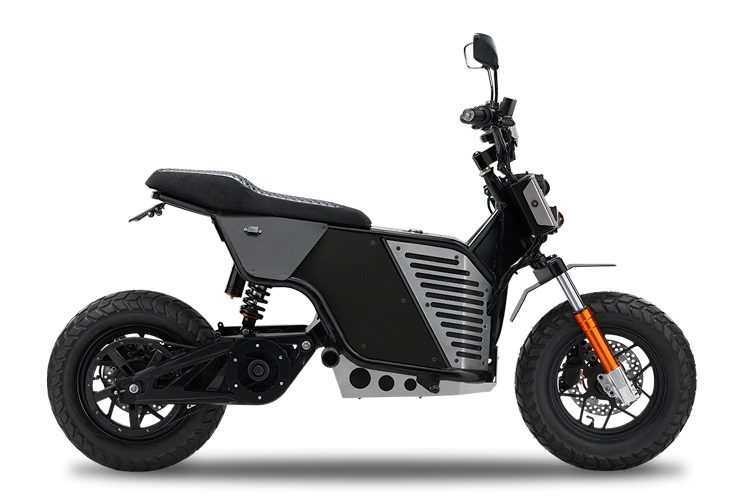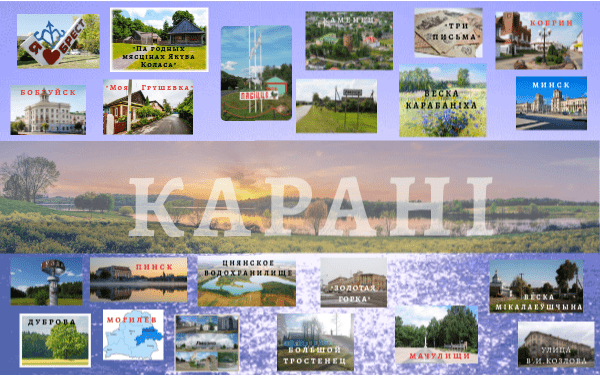
9 million Poles will go on holiday in their own car
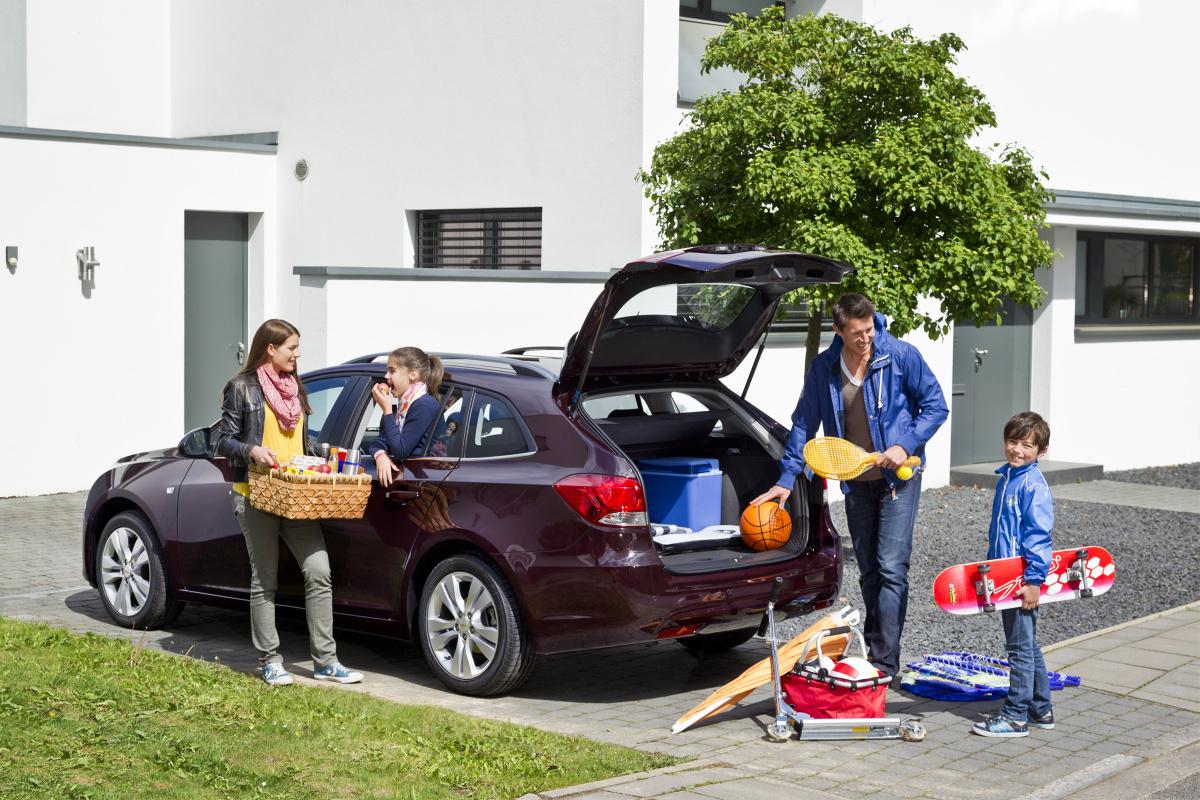 According to the latest study*, 72% of Poles planning a holiday trip to the country this year intend to drive their own car. What to look for when preparing for a trip?
According to the latest study*, 72% of Poles planning a holiday trip to the country this year intend to drive their own car. What to look for when preparing for a trip?
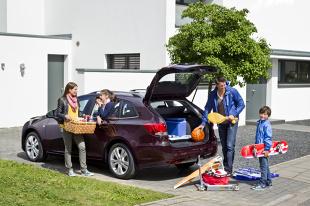 The car, as the most important means of transportation on the way to the national holiday, certainly dominates. More than seven out of ten Poles (72%) planning such a holiday will use it. Significantly fewer people will choose another mode of transport - train 16%, bus 14%. In the case of holidays abroad, the plane has a large share, but 35% of us will choose a car. According to the same poll, about 15 million Poles will go on holiday this year, including 9 million with their own car.
The car, as the most important means of transportation on the way to the national holiday, certainly dominates. More than seven out of ten Poles (72%) planning such a holiday will use it. Significantly fewer people will choose another mode of transport - train 16%, bus 14%. In the case of holidays abroad, the plane has a large share, but 35% of us will choose a car. According to the same poll, about 15 million Poles will go on holiday this year, including 9 million with their own car.
With such a large share of the car as a means of transportation, its proper preparation is of great importance. Experts note that summer and usually good road conditions dull the attention and not everyone bothers to prepare the car for a long journey. We also forget about the statistics of traffic accidents - it is during the summer holidays that there are most of them - according to the General Police Department, 3646 and 3645 accidents were recorded in July and August last year, respectively, and during the holidays they were at the top of the list of those with the largest number accidents.
If you run out of fuel “far from civilization”
Before you go on holiday, it's best to have your car checked out by a trusted workshop that will fill up the fluids, adjust the lights, and check the general technical condition. Preparation for the trip, however, should begin with formal questions. The main thing is to check the validity of the technical inspection and compulsory insurance. It is also worth checking if we have assistance insurance and if it is valid in the country/countries we are traveling to. A loaded vehicle traveling long distances, often in high air temperatures, can be problematic even if it used to be reliable.
– Every year we help motorists in many places in Europe. In addition to breakdowns and shocks, emergency situations also occur on holidays, for example, locking the keys in the car or lack of fuel in some empty lot. Calling for local help can be difficult, not only because of the language barrier. Of course, it is easier to call the support number prepared before leaving and get help on the hotline in Poland, explains Piotr Ruszowski, Director of Sales and Marketing at Mondial Assistance.
Assistance we may receive under assistance (depending on the package owned): fuel delivery, on-site repair, towing, accommodation, replacement car, transportation of travelers, collection of the car after repair, secure parking for a damaged vehicle or a replacement driver. All services are ordered and coordinated by the hotline in Polish. How much does it cost?
– It may sound too optimistic, but very often it is worth nothing. It's just that many of the OC/AC insurance packages also include an assistance service covering Poland and EU countries. It's best to check before you go on vacation. If we do not have such insurance, it is worth considering, especially since the cost is low, and the possibility of buying online means that it can be done even at the last minute, the day before departure, - adds Piotr Rushovsky. .
What if we go abroad?
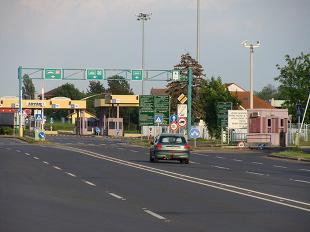 According to research, Croatia tops the list of the most popular countries that Poles plan to travel to this year (14% of responses). The top ten also includes Italy, Germany, France and Bulgaria. We will mainly travel to these countries by car, so before such a trip it is worth checking the differences in the regulations or the mandatory equipment of the car. Before planning a trip, it is worth checking the website of the Ministry of Foreign Affairs and checking if there are situations that pose a threat to travel in the country you are going to travel to.
According to research, Croatia tops the list of the most popular countries that Poles plan to travel to this year (14% of responses). The top ten also includes Italy, Germany, France and Bulgaria. We will mainly travel to these countries by car, so before such a trip it is worth checking the differences in the regulations or the mandatory equipment of the car. Before planning a trip, it is worth checking the website of the Ministry of Foreign Affairs and checking if there are situations that pose a threat to travel in the country you are going to travel to.
In most European countries, the compulsory equipment of a car includes: installed and used seat belts (on all seats of the car), child seats, warning triangle, a set of spare lamps (except for LED lamps, etc.), fire extinguisher, first aid kit, reflective vests. . A first aid kit, which is recommended only in Poland and we will not receive a mandate for its absence, is absolutely necessary and strictly observed in other European countries, for example in Croatia, Slovakia, the Czech Republic, Germany or Hungary. . It's also worth checking the requirements for driving with headlights - there is no requirement in Croatia to use them for 24 hours, but when crossing the Hungarian border outside built-up areas, the headlights must be on for XNUMX hours a day, all year round.
Where is liability insurance alone not enough?
When traveling abroad, you must check whether the Polish third party liability insurance will be valid after any damage. If not, you must obtain a so-called Green Card, i.e. internationally valid proof of valid auto insurance. This confirmation is valid in 13 countries**. Most of them are European countries, however, the Green Card System has also been joined, in particular, by Morocco, Iran or Turkey. So, who will drive a car on vacation to countries such as Albania, Montenegro or Macedonia and cause an accident or an accident there, without a green card, they will not be able to count on insurance protection.
– The financial argument speaks in favor of having such insurance. Thanks to the Green Card, the driver will not incur unnecessary costs for buying local insurance, which can sometimes be very expensive. In addition, he receives a guarantee that he will not pay for collisions caused by him from his own funds, but the insurer will do it for him, explains Marek Dmitrik from Gothaer TU SA.
You won't get a ticket if you know that(collected by Mondial Assistance)
Traffic rules in most European countries are very similar. However, there are slight differences, and in addition, in some countries, special attention is paid to certain provisions. Knowing them will help you avoid fines.
Germany:
- ticket for lack of fuel on the track,
– prohibition signs are not canceled by the intersection. They are canceled only by the sign “end of the ban”,
- for exceeding the speed limit, the driver must be prohibited from driving for a period of at least a month,
– in a residential area, vehicles can move no faster than 10 km/h (twice as slow as in Poland),
– the locality (which leads to a speed limit) is marked with a yellow sign with the name of the city,
– no overtaking on the right side of the motorway,
- no sidewalk parking
– the need to wear reflective vests by the driver and passengers of cars Vests must be used both day and night by the driver or passenger in the event of leaving the car (for example, a car breakdown) in disadvantaged areas, on highways and expressways. Previously, this provision did not apply to cars.
Belgium – The use of rear fog lights is only permitted when visibility is limited to 100 m
Spain – fog lights must be used when driving in bad weather conditions (fog, rain, snow)
Hungary – dipped headlights are required around the clock outside built-up areas (not necessary in built-up areas during the day)
Luxembourg – the car must have working wipers
Austria, Czech Republic, Slovakia – the provisions on the absence of a first-aid kit are strictly observed (in Poland this is only recommended)
Russia - the regulation provides for a fine if the car is dirty
_______________________
* "Where, for how long, for how long - the average Pole on vacation", conducted by AC Nielsen for Mondial Assistance in May this year.
** Countries included in the Green Card insurance coverage: Albania, Belarus, Bosnia and Herzegovina, Montenegro, Iran, Israel, Macedonia, Morocco, Moldova, Russia, Tunisia, Turkey, Ukraine.
